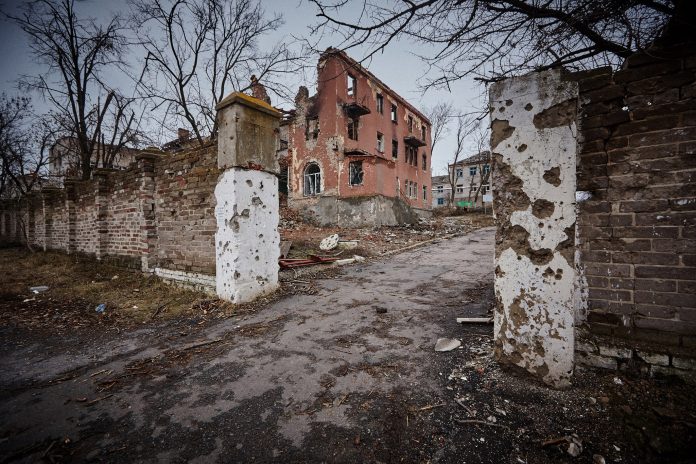On Tuesday, MEPs agreed that the EU should remain open to imposing further sanctions if Russia continues to violate international law.
Parliament adopted on Tuesday a resolution by 402 votes to 163, with 89 abstentions, assessing the current state of EU-Russia political relations.
Sanctions must be prolonged
MEPs note that new areas of tension between the EU and Russia have arisen since 2015, including Russia’s intervention in Syria, interference in countries such as Libya and the Central African Republic, and continuous aggressive action in Ukraine. They also highlight Russia’s support for anti-EU parties and far-right movements, and that it keeps meddling in political elections and violating human rights in its own state.
Taking stock of these violations of international law, MEPs stress that the EU should stand ready to adopt further sanctions against Russia, especially those targeting individuals. Sanctions should be proportionate to the threats posed by Russia, they add. In December last year, the Council prolonged economic sanctions until 31 July 2019.
Addressing global challenges together
The resolution underlines that the EU should review its current Partnership and Cooperation Agreement (PCA) with Russia and limit cooperation to areas of common interest. Global challenges, such as climate change, energy security, digitalisation, artificial intelligence and the fight against terrorism call for selective engagement, MEPs say.
EU has to be ready to adopt further sanctions against Russia
Closer relations will only be possible if Russia fully implements the so-called Minsk agreements to end the war in eastern Ukraine and starts respecting international law, says the text.
Response to disinformation
MEPs condemn Russia‘s disinformation campaigns and cyber attacks, aimed at increasing tensions within the EU and its member states. They are deeply concerned that the EU‘s response to propaganda and disinformation is insufficient and should be further strengthened, in particular before the upcoming European elections in May 2019. In this regard, the funding and human resources for the EU‘s East Stratcom Task Force must be substantially increased, they stress.
They also pointed out and condemned Russian attempts to interfere in EU affairs, namely its involvement in the Skripal case, disinformation campaigns as well as cyberattacks carried out by the Russian intelligence services aimed at destabilising public and private communications infrastructure and at increasing tensions within the EU and its Member States and the countries aspiring to EU membership.
Threat to the neighbours
Parliament strongly denounces Russia‘s violation of the airspace of EU states, especially in the Baltic Sea region, where territorial waters and the airspace have been repeatedly breached. This disregard for international rules poses a threat to Russia‘s neighbours in the Black Sea, Baltic Sea and Mediterranean regions.
Russia must restore Ukraine’s territorial integrity
MEPs strongly condemned human rights violations carried out by Russian representatives in the occupied territories in Ukraine and in Georgia and Moldova, reiterating that the EU should be ready to prolong its sanctions as long as the Russian violation of international law continues.
Nord Stream 2
MEPs also reiterate their concerns that the Nord Stream-2 project could reinforce the EU‘s dependence on Russian gas supplies and threaten the EU internal market.
Support to authoritarian regimes and disruptive political forces
MEPs are concerned about Russia‘s continuous support for authoritarian regimes and countries such as North Korea, Iran, Venezuela and Syria. They also regret that in order to destabilise EU candidate countries, Russia gives its support to organisations and political forces like those opposing the Prespa Agreement that has resolved the long-standing dispute on the name between the former Yugoslav Republic of Macedonia and Greece.
Russia‘s economic warfare
MEPs condemn illegal financial activities and money laundering by Russia, potentially amounting to hundreds of billions of euros being laundered through the EU every year, which poses a threat to European security and stability. The report underlines that EU countries concerned must end all ‘golden visa/passport’ programmes, which benefit Russian oligarchs.
“Today, five years after the occupation of Crimea, we stress that there is no return to business as usual until Russia fully restores the territorial integrity of Ukraine. We need to reassess the basis of our relations with Russia as it can no longer be considered a strategic partner”, said Sandra Kalniete MEP, Vice-Chairwoman of the EPP Group responsible for foreign affairs, whose Report on the state of EU-Russia relations was adopted today by the European Parliament.
Global challenges must be addressed through selective EU-Russia cooperation
“The time for nice and diplomatic language is over. There is very little room for any cooperation as long as Russia continues to occupy parts of Ukraine and launch hybrid attacks against other European countries. The outdated EU-Russia Partnership and Cooperation Agreement should be reconsidered and any future framework for the EU-Russia relationship should be based on the full respect of international law and OSCE principles. The common denominator of future engagements should be more for more and less for less”, continued Kalniete.
The Report also calls on EU Member States to continue without undue delay on the elaboration of the European Magnitsky Act – the new EU sanctions regime targeted against those responsible for breaches of human rights.

